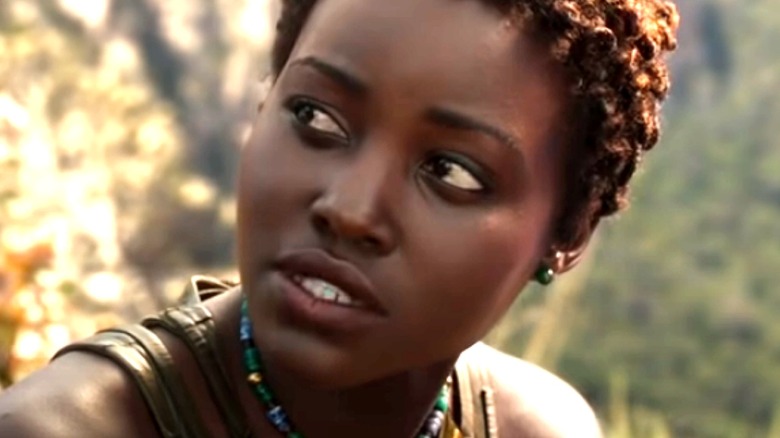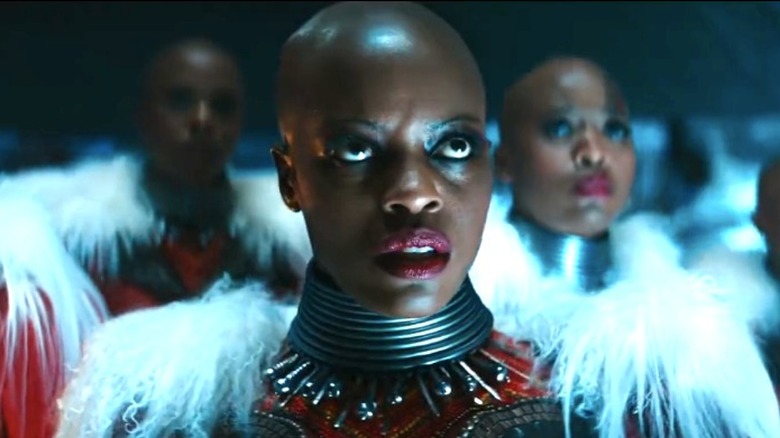We Finally Know Which MCU Movie Ends Phase 4
Some studios make television shows, some make movies, and some make both, but few are as hell-bent on swallowing the cinematic and streaming landscape whole as one Marvel Studios — a superhero powerhouse so prolific that it has had to release its various productions in phases. At the 2022 San Diego Comic-Con, the studio addressed an ongoing question about its current chapter, and their answer implies that Phase 4 might finally find its footing in terms of direction — on its final film.
Phase 1 began in 2008 with Jon Favreau's "Iron Man" and concluded in 2012 with Joss Whedon's "The Avengers." While the studio's first installment introduced audiences to some of the MCU's heaviest hitters, Phase 2 furthered the Avengers' narrative with 2015's "Avengers: Age of Ultron," but not before releasing the preferred IP of trash pandas everywhere, "Guardians of the Galaxy" (2014). Then came Phase 3, in which we survived a civil war, lost an infinity war, met Benedict Cumberbatch's "Dr. Strange" and Brie Larson's "Captain Marvel," and, in 2018, were gifted with the first "Black Panther" film. The phase concluded with "Spider-Man: Homecoming," after wrapping up the Avengers' narrative with "Endgame" in 2019. In contrast to the first three phases, Phase 4 wove in a litany of Marvel/Disney+ television series (7 so far, 10 in total) and moved away from a grounding through line. Now, thanks to SDCC 2022's Marvel panel, we at least know how and when Phase 4 will end.
Black Panther: Wakanda Forever will conclude Phase 4
This fall, Marvel is heading back to the arguable crown jewel of its third phase with "Black Panther: Wakanda Forever" which, as fans well know, will finally hit theaters on November 11th. Its release, Marvel has confirmed, will mark the end of the vast and occasionally polarizing Phase 4, a chapter that began with the critically acclaimed "WandaVision" and, most recently, hit us with the decidedly less universally revered "Thor: Love and Thunder."
Given the overwhelmingly positive response to "Black Panther" (via Rotten Tomatoes) and the lackluster-at-best response and confused-at-worst response to the studio's current phase, the decision to end it on the long-anticipated sequel makes sense. A return to a franchise with real-world relevance — particularly after the long wait that fans have had to deal with and the various setbacks "Wakanda Forever" has had to endure — might just remind some of the MCU's increasingly unimpressed audiences why it deserves so much content in the first place (if, indeed, it is). It's a reminder that will prove invaluable on the cusp of Phases 5 and 6, which promise to include similarly endless streams of superhero stories.

